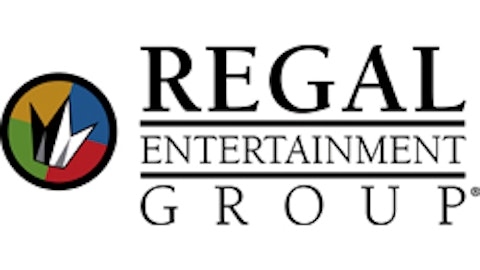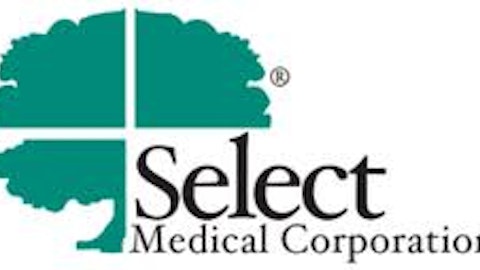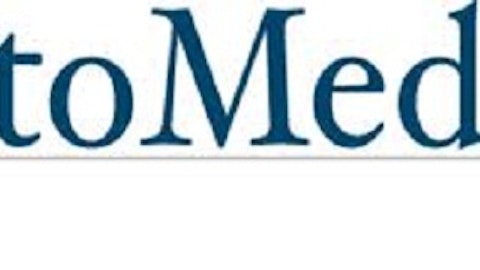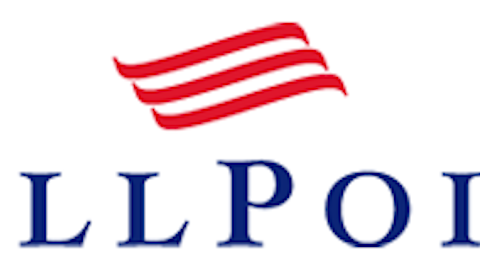I’ve stood by Intuitive Surgical, Inc. (NASDAQ:ISRG) and supported the robotic surgical device maker through thick and thin all while short-sellers and skeptics have torn it apart. Last night, the ball was knocked decisively back to the pessimist’s side of the court.

Intuitive Surgical, Inc. (NASDAQ:ISRG)’s press release noted some of the specifics of why the company fell short of expectations, but will leave the majority of its explanations for the conference call on July 18. Noted briefly within the release, though, was a combination of declining U.S. da Vinci surgical system sales caused by “economic pressure on hospitals,” and a slowdown in benign gynecological procedures.
The problems on the surface
There are a lot of potential factors that, on the surface, look as if they could have played a role in causing Intuitive Surgical, Inc. (NASDAQ:ISRG) to miss its revenue estimates. But, as you’ll see, these probably aren’t the real reason why Intuitive Surgical, Inc. (NASDAQ:ISRG) disappointed Wall Street and investors.

Source: Roswell Park, Flickr.
First and foremost, Citron Research and its chief researcher Andrew Left have been critical of the company since December when it outlined a five-point letter highlighting Intuitive’s shortcomings. Specifically, Left questioned the advantages of robotic surgery — including their safety — the way Intuitive Surgical went about marketing its products, and the potential for complaints and lawsuits stemming from complications associated with the da Vinci surgical system. While the concerns are certainly a nuisance, I would hardly call Citron’s commentary the reason Intuitive missed the mark in the second-quarter. Had this been the reason, Intuitive shouldn’t have crushed EPS estimates in the first-quarter… but it did!
Another possibility is the ongoing federal probe into the safety and efficacy of its da Vinci surgical system announced in late February. If physicians feel there is merit to the federal investigation into the safety of the da Vinci surgical system, they may opt for traditional laparoscopic surgery instead. Yet, studies have been published in the Journal of the American Medical Association that examined more than a quarter of a million women who had a hysterectomy between 2007 and 2010 and determined that robotic surgery was just as safe as laparoscopic surgery, with patients often spending less time recovering in the hospital compared to laparoscopic surgery.
It’s also logical to expect the number of complaints to rise as the number of procedures performed increases. As a percentage of overall procedures, there’s nothing disconcerting about the da Vinci surgical systems’ safety profile. In sum, I highly doubt the federal probe had much of anything to do with this quarter’s sales miss.
We could always blame Europe for the shortfall; I mean everyone else is doing it, right? Just yesterday, niche diagnostic and device maker for infants and newborns Natus Medical Inc (NASDAQ:BABY) warned that its revenue would be short of the Street’s estimates because of tepid European demand for its products. Even having products with little competition in a niche category (infants and newborns) wasn’t enough to save Natus Medical Inc (NASDAQ:BABY); could that be the reason Intuitive is faltering?
Actually, no, it isn’t. In fact, in what few words Intuitive Surgical CEO Gart Guthart put out in yesterday’s press release, he had this to say (emphasis mine), “While we are disappointed in our performance this quarter, particularly with respect to our capital sales in the U.S., overall procedure performance was solid in a difficult environment.” This is one of those rare cases where blaming Europe simply isn’t justified.
This is the real problem
What I suspect to be Intuitive Surgical’s real reason for the revenue shortfall isn’t truly listed in its press release other than a mention of “economic pressures on hospitals.” That, my fellow Fools, is what I suspect is code terminology that blames the uncertainties caused by the pending implementation of the Patient Protection and Affordable Care Act, also known as Obamacare. That’s right, folks; I’m blaming Obamacare for Intuitive Surgical’s mess.

Source: White House, Wikimedia Commons.
As we’ve discussed many times over in the past, Obamacare has plenty of proposed benefits and quite a few shortcomings as well. But, if there’s one thing that both sides of the aisle can agree on, it’s that there are a slew of still unanswered questions surrounding its implementation, costs, and the state-run exchanges, just to name a few things. The uncertainties and added costs of the PPACA are beginning to take their toll on Intuitive, and there could be more companies to follow.
How Obamacare is hurting Intuitive Surgical
For more than a year now, investors (me included) have been focused on the negative effect that the 2.3% medical device excise tax would have on top-line results and innovation for medical device makers like Intuitive Surgical. While I’m sure this tax isn’t helping Intuitive, it only tells part of the story why it’s hurting.
In preparation for the implementation of Obamacare, there are also a slew of cost uncertainties for hospitals and insurers.
Though hospitals are widely expected to be the biggest beneficiaries of Obamacare since the individual mandate will require everyone to carry health insurance and ultimately lower their doubtful accounts provision, they also have plenty of uncertainties to contend with.
Take, for instance, the flat penalty for failing to obtain health insurance in 2014 is just $285 per family, or 1% of family income — whichever is greater. This relatively minuscule fee may encourage currently uninsured individuals to remain uninsured, making little headway on hospitals’ doubtful provisions. At the same time, Medicare reimbursement rates for acute-care hospitals are likely to fall in 2014 and beyond as the government attempts to reduce its roll in funding many for-profit health care institutions. This is a dicey scenario for large hospital operator HCA Holdings Inc (NYSE:HCA), which logged more than 10% of its total revenue last year as doubtful. If a sizable number of patients walking into its hospitals remain uninsured, HCA Holdings Inc (NYSE:HCA) will be unable to meaningfully reduce its doubtful accounts as reimbursement rates fall. To that end, it’s not unexpected to see hospitals wavering on spending big bucks on the da Vinci surgical system, which is approaching a $2 million price tag!
Insurers have many of the same concerns. WellPoint, Inc. (NYSE:WLP) completely repositioned itself with its $4.5 billion purchase of AMERIGROUP in order to get a hold of as many of the 16 million soon-to-be newly qualified Medicaid-based members under Obamacare. If these members don’t sign up because of technical problems with the state exchanges, or a lack of education informing them where to go to get the insurance they’ve qualified for, then insurers like WellPoint, Inc. (NYSE:WLP) are going to be in a world of hurt. This uncertainty comes on top of the PPACA calling for an 80% medical loss ratio cap on insurers. In other words, they’ll be required to spend at least 80% of premium money collected on patient care. With the odds stacked against insurers, it’s not hard to see why they’ve been more cautious about giving the green light to Intuitive’s costlier robotic procedures.
Who’s next, and when will this end?
If I’m right, then it’s probably just a matter of time before MAKO Surgical Corp. (NASDAQ:MAKO) reveals similar weakness in its hip and knee procedure volume. A shortfall for MAKO Surgical Corp. (NASDAQ:MAKO) would be more concerning, however, since it’s still running in the red whereas Intuitive Surgical is healthfully profitable, even after last night’s revenue miss.
The question shareholders really should be asking themselves is, “When will this all blow over?” The answer to that question is probably not until the first or second quarter of next year. As we near the milestone dates for Obamacare of Oct. 1 for the opening of the state health exchanges and Jan. 1 for the full implementation of the PPACA, I’m afraid the uncertainties surrounding the bill and the spending habits of many health care companies — including hospitals and insurers — are only going to grow more cautious. Intuitive may be today’s sacrificial lamb, but it could be just the start of a rough patch for the health care sector.
My suggestion would be to keep your expectations reasonable for its growth prospects over the near term, but not to allow your emotions to cloud your better judgment. Nothing has, thus far, shown that robotic surgery isn’t safe. Intuitive has a veritable monopoly in soft tissue robotic surgery, which comes with perks like incredible pricing power for its devices, minimal market expenses, and near-guaranteed profitability. Over the long run, Intuitive Surgical still has my support; but that isn’t to say we won’t need a Band-Aid every now and then.
The article This Is What’s Really Behind Intuitive Surgical’s Revenue Shortfall originally appeared on Fool.com.
Fool contributor Sean Williams has no material interest in any companies mentioned in this article. You can follow him on CAPS under the screen name TMFUltraLong, track every pick he makes under the screen name TrackUltraLong, and check him out on Twitter, where he goes by the handle @TMFUltraLong. The Motley Fool owns shares of, and recommends, Intuitive Surgical and WellPoint. It also recommends MAKO Surgical and Natus Medical.
Copyright © 1995 – 2013 The Motley Fool, LLC. All rights reserved. The Motley Fool has a disclosure policy.





